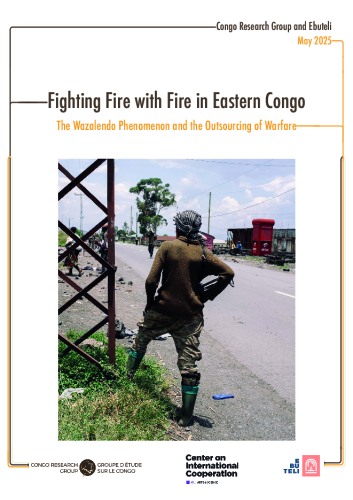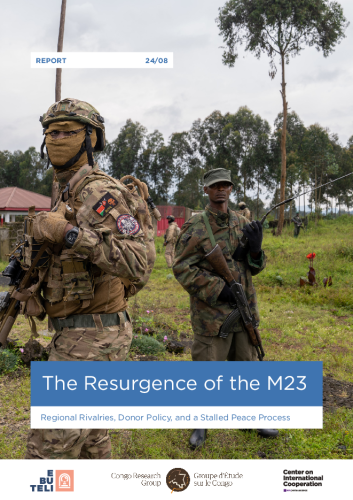This report traces the evolution of the Wazalendo (“patriots”) phenomenon, an eclectic coalition of armed groups which became key allies of the Armed Forces of the Democratic Republic of the Congo (FARDC) in its fight against the March 23 movement (M23) and the Rwanda Defence Force (RDF) dating back to at least 2022.
It investigates the emergence of the term “Wazalendo,” the history, and rationale behind this outsourcing of violence, and the impact on local communities. The Wazalendo are a continuation of a longstanding strategy in the region to outsource warfare to armed groups due to the weakness of the security services, in addition to the potential profits and the populist dividend that this backing can provide to politicians.
Since at least the mid-1990s, Congolese conflicts have featured the use of armed groups as proxies. Rwanda and Uganda have both backed Congolese armed groups on various occasions in the past decades, and the Congolese army has frequently used armed groups against its armed rivals. The return of the M23 to active fighting in November 2021 has triggered a new era of proxy warfare.
Confronted with an oversized but inefficient army, Kinshasa outsourced counterinsurgency to an array of actors: private security contractors, the Burundian army, the Democratic Forces for the Liberation of Rwanda (FDLR) rebels, and numerous Congolese armed groups now commonly referred to as Wazalendo. Most of the groups who fall under this label existed be-fore; some of them previously fought each other. They have diverse motivations: on one hand, a sense of nationalism, but also the opportunity to access funding and positions in the national army and possibly to secure impunity for past crimes.
In this report, the authors:
- Study two of the main clusters of Wazalendo.
- Argues that the approach of backing local armed groups will create a hefty political mortgage for years to come.
- Points to the long-term importance of reforming the Congolese state, its security forces, and its approach to the conflict.
French report forthcoming.



